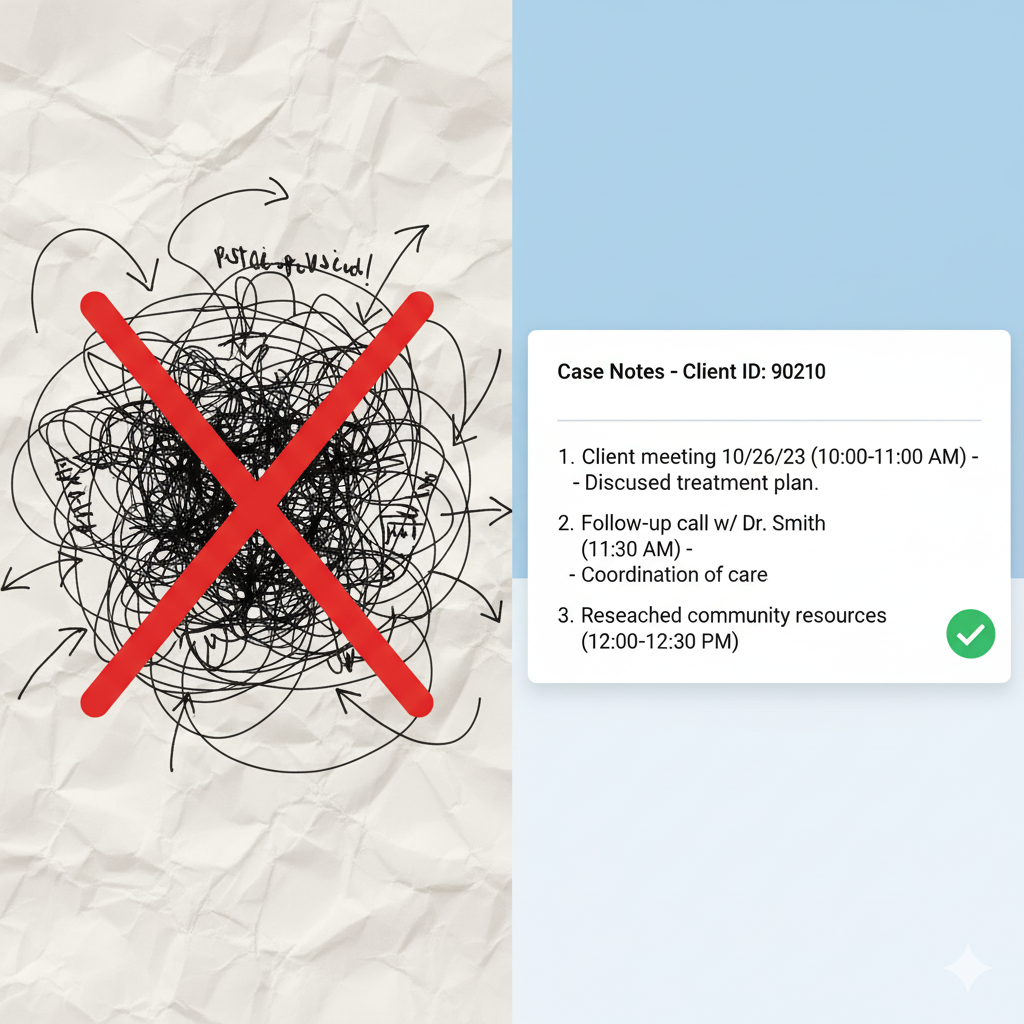Time Recording 101: How to Write Narratives That Partners Actually Appreciate
A great time narrative tells a concise story of the value you provided. It uses a simple formula: an action verb, a specific description of the task, and the purpose or context of that task. This transforms your entry from a simple log into a clear justification for your work that partners and clients can easily understand.
Why Your Narratives Matter More Than You Think
From a partner's perspective, time recording isn't just an administrative chore; it's a critical communication and management tool. We don't read your narratives to check up on you—we read them to:
Justify Bills to Clients: A client is far more likely to pay an invoice without question if they can clearly see the work and value behind each entry. Vague narratives like "Work on file" invite scrutiny and write-downs.
Manage Budgets: Detailed narratives allow us to track progress against a budget, identify potential scope creep, and have informed conversations with the client about costs.
Understand the File's Status: Your time entries are often the most up-to-date record of a file's progress. They tell us what was just completed and what needs to happen next.
Evaluate Performance: Clear, professional narratives are a direct reflection of your diligence and commercial awareness. They show that you understand why you're doing the work, not just what you're doing.
The Formula for a Perfect Narrative
Forget vague descriptions. The best narratives follow a simple, repeatable structure that clearly communicates value.
Action Verb + Specific Task + Purpose/Context
Let's break that down:
Action Verb: Start with a strong, specific verb that describes the cognitive effort.
Instead of: "Looked at," "Worked on"
Use: "Reviewed," "Analysed," "Drafted," "Researched," "Conferred with," "Prepared for," "Revised"
Specific Task: Clearly state what you were working on. Be precise.
Instead of: "the agreement"
Use: "the indemnity clause in the Share Purchase Agreement" or "the witness statement of Jane Doe"
Purpose/Context: This is the secret ingredient. Why were you doing this task? What was the goal?
Instead of leaving it blank...
Add: "to identify key risks for client," "in preparation for the upcoming mediation," or "to incorporate the client's recent feedback."
Examples: The Bad vs. The Excellent
Here’s how the formula transforms a weak narrative into one a partner will appreciate.
🚫 The Bad (Vague and Unhelpful):
"Emails"
"Research"
"Work on Smith file"
"Drafting"
✅ The Excellent (Clear, Specific, and Purpose-Driven):
"Corresponded with opposing counsel regarding extensions for discovery deadlines."
"Researched case law on contractual penalties in preparation for drafting the advice to the client."
"Reviewed and analysed the expert financial report from Acme Consulting to identify key points for our statement of claim."
"Drafted the initial sections of the closing submission, focusing on the evidence from the first two witnesses."
Pro Tips for Effective Time Recording
Record Contemporaneously. Don't wait until the end of the day or week. Your descriptions will be less accurate and you'll likely forget billable time. Use a notebook or the system's timer function as you go.
Break Down Large Blocks. If you spend three hours on a file, don't just have one entry. Break it down into the distinct tasks you performed (e.g., 1.5 hours reviewing documents, 1.5 hours drafting a letter). This shows a high level of detail and efficiency.
Think Like the Client. Before you save an entry, read it from the client's perspective. Does it make sense? Does it sound like valuable work that you would be willing to pay for?
Be Professional. Avoid using slang, abbreviations that others won't understand, or expressing frustration in a narrative (e.g., "Waited on hold with court registry"). Simply state the task: "Followed up with court registry regarding filing status."
Mastering the skill of writing effective time narratives is a simple but powerful way to demonstrate your professionalism, build trust with supervisors, and make yourself an indispensable part of the team.


